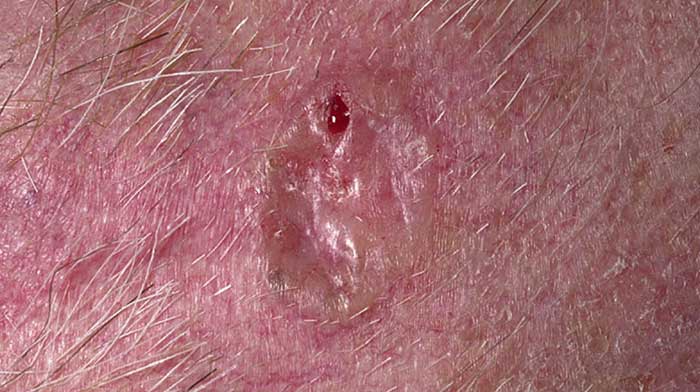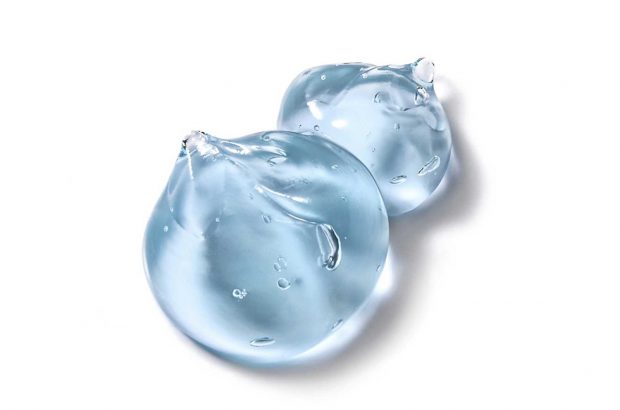
Basal Cell Carcinoma (BCC)
Basal cell carcinoma (or BCC for short), is the commonest type of skin cancer in humans. In fact basal cell carcinoma is commoner than almost all other types of cancer put together.
As an indication of this is the fact that about one in four Americans born today will develop a basal cell carcinoma in their lifetime. Although it is technically defined as a cancer (meaning an uncontrolled growth of cells), dermatologists reassure patients that basal cell carcinoma is extremely unlikely to pose any threat to life or general health.
This is because BCC almost never spreads to any other part of the body (metastasises), but just grows very slowly on the skin.
What treatments are available?
Basal cell carcinoma is usually completely curable with locally skin-directed treatment. For most types of basal cell carcinoma, surgical excision under local anaesthetic is the treatment of choice. The area of skin in numbed using local injections, and the basal carcinoma is then exised with a small margin of surrounding normal skin. The skin is then stitched together neatly. The wound will usually heal well, leaving a surgical scar. The most effective treatment available for BCC is a specialised type of surgery called Mohs’ micrographic surgery. This technique has the highest cure rate of any treatment for basal cell carcinoma (99% compared to about 94% for conventional surgery) and is also useful because it is tissue-sparing, meaning only a minimal amount of normal skin needs to be removed around the tumour, so that a smaller scar is likely to result. Mohs’ surgery is generally used for facial basal cell carcinomas.
An alternative to surgery is radiotherapy, which uses x-ray radiation to treat the skin cancer. This treatment is given by a clinical oncologist (doctor specialising in radiotherapy cancer treatment) and usually involves ten painless treatments given over 2 weeks. This causes the skin to become red and sore for a few weeks and then the cancer usually is destroyed. It does not cause generalised hair loss or make patients feel unwell (like some types of chemotherapy). Radiotherapy cures over 90% of BCCs, but there is a chance that skin cancers can occur many years later in the treated area. Also after several years, a mottled scar with visible blood vessels and pigment change can appear. For these reasons surgery is sometimes preferred in younger adults, because unlike radiotherapy scars, surgical scars tend to improve with time.
Whilst most BCCs are best treated with surgery of radiotherapy, some superficial (very flat) basal carcinomas can be treated with freezing (cryotherapy), a light based treatment called photodynamic therapy, or even topical treatment with creams for a few weeks. Each of these treatments has good cure rates and is advantageous because they are not invasive. Dermatologists will be able to discuss the pros and cons of each of these treatment types with you and help you make a choice about which is right for you.
What does Basal Cell Carcinoma look like?
The commonest types of basal cell carcinoma usually appear as firm flesh coloured lumps a few millimetres in size. They grow slowly with time, may have a slightly pearly white appearance when the skin is stretched and often have small visible blood vessels on the surface. With time, the surface of the BCC can break down so that it bleeds or crusts easily. Most basal cell carcinomas appear on the face, but anywhere on the body can be affected. Some rarer types of basal cell carcinoma are not raised but flat and scar like, with edges that are difficult to see. Dermatologists are the specialist doctors in the UK with the highest level of experience in the diagnosis and management of basal cell carcinoma.
What is the Cause of Basal Cell Carcinoma?
Sun exposure is the main factor causing BCC. It is usually the total sun exposure in a person’s whole lifetime that is important rather than sunburns (which are more important in causing melanoma, the most serious form of skin cancer). For this reason BCC is much commoner in people with fair skin, although people with all skin types can be affected.






